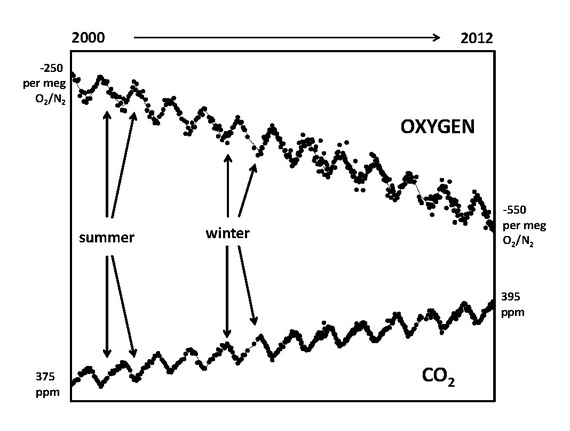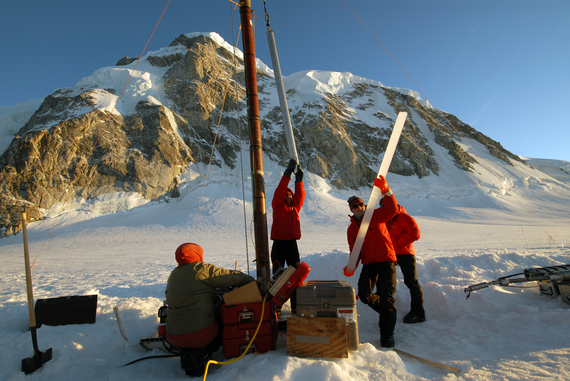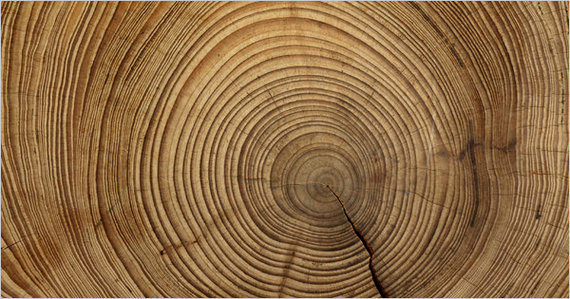
In a recent opinion piece for the Washington Post, George Will asked how "Cassandras" who worry about global warming accommodate historical evidence that climate can also change naturally without our help. I'll answer here as a climate scientist.
Years ago, I too doubted that humans are warming the planet. But I changed my mind in the face of overwhelming evidence. The rise in heat-trapping carbon dioxide matches our rate of fossil fuel use and it also mirrors a simultaneous decline in atmospheric oxygen caused by that combustion.
Rising carbon dioxide and falling oxygen concentrations from 2000 AD to 2012 AD, as measured by atmospheric scientist Ralph Keeling, Scripps Institute of Oceanography. The brief oscillations in the curves represent cyclic uptake and release of these gases by the world's plants and plankton through the seasons.
The recent warming trend is firmly documented by thousands of globally distributed weather records, and it matches the rise in greenhouse gases but not sunspots or volcanic activity. The oceans are rising and acidifying as expected from the carbon dioxide buildup, and the isotopic signature of fossil carbon fumes even appears in our own bodies as it contaminates the planet's food chains.
This interlocking array of high-quality evidence clinches the matter, if you respect science. We can easily reconcile geological history with the present by comparing the well-documented causes of today's warming with hot spells of the past. But if that's not enough, then we can also take a closer look at the natural cycles that climate deniers often blame for today's warming.
From ice and aquatic sediment cores we know that cyclic tilts, wobbles, and orbital distortions of the earth relative to the sun have repeatedly triggered ice ages and warm interglacials during the last 2.5 million years. But those cycles operate on millennial time scales, far too slowly to explain what is going on now.
Cores, tree rings, corals, and cave formations also tell of shorter events during the last millennium. They show, for example, that a natural cold spell did indeed occur between the 15th and 19th centuries, but we are not simply climbing out of that so-called "Little Ice Age" in modern times. We emerged from it about a century ago only to land on a coal-burning stove. We now have to decide whether to jump off the stove or go up in smoke.
If we switch quickly from non-renewable fossil fuels to smarter alternatives, then it's a win-win situation. Providers of those new energy sources grow wealthy, modern society continues, and the world becomes only a few degrees warmer than now. But if the George Wills of the world hoodwink us into burning all accessible coal, oil, and gas reserves until our descendants are forced to switch to something else under duress later on, then our artificial hothouse will de-ice the planet, acidify the oceans, and flood coastlines for many thousands of years to come. The wise and truly conservative response to this situation is to find more sustainable ways to fuel our civilization.
As I explained in Deep Future: The Next 100,000 Years of Life on Earth, the message from the geological past is not "big deal, appalling climate disasters have happened before." Climate science tells us that we don't want to go through equally appalling disruptions of our own making, and also that we don't necessarily have to.


